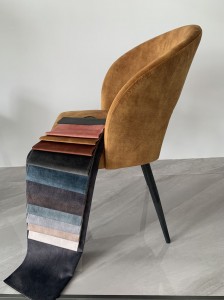Cotton:
Advantages: Cotton fabric has good moisture absorption, insulation, heat resistance, alkali resistance, and hygiene. When it comes into contact with human skin, it makes people feel soft but not stiff, and has good comfort. Cotton fibers have a strong resistance to alkali, which is beneficial for washing and disinfection.
Disadvantages: Cotton fabric is prone to wrinkling, shrinkage, deformation, lack of elasticity, and has poor acid resistance. Prolonged exposure to sunlight may cause the fibers to harden.
Linen
Advantages: Linen is made of various hemp plant fibers such as flax, reed hemp, jute, sisal, and banana hemp. It has the characteristics of breathable and refreshing, not easy to fade, not easy to shrink, sun resistance, anti-corrosion, and antibacterial. The appearance of burlap is relatively rough, but it has good breathability and a refreshing feeling.
Disadvantages: The texture of burlap is not very comfortable, and its appearance is rough and stiff, which may not be suitable for occasions that require high comfort.
Velvet
Advantages:
Sustainability: Velvet fabrics are usually made from natural fiber materials such as cotton, linen, etc., which have better sustainability.
Touch and Comfort: Velvet fabric has a soft and comfortable touch, giving people a warm feeling, especially suitable for users who pursue comfort.
Disadvantages:
Durability: Velvet fabric is relatively soft, prone to wear and fading, and requires more careful use and maintenance.
Cleaning and maintenance: Velvet is relatively difficult to clean and may require professional cleaning or dry cleaning. It is also prone to absorbing dust and stains, requiring more maintenance and upkeep.
Technology fabric
Advantages:
Durability: Technology fabrics usually have good durability and wear resistance, suitable for long-term and frequent use.
Cleaning and maintenance: Technology cloth is easy to clean and can be wiped with a damp cloth or machine washed. It is not easy to absorb dust and stains, and is also not prone to wrinkling.
Waterproof and breathable properties: Technology fabrics usually have good waterproof and breathable properties, which can prevent liquid penetration and maintain ventilation.
Disadvantages:
Sustainability: Tech fabrics are typically made from synthetic fiber materials such as polyester or nylon, which have a significant impact on the environment.
Touch and Comfort: Although technology fabric has a smooth and lubricating touch and is not prone to static electricity, its softness and comfort are slightly inferior to velvet fabric.
Post time: Aug-27-2024



